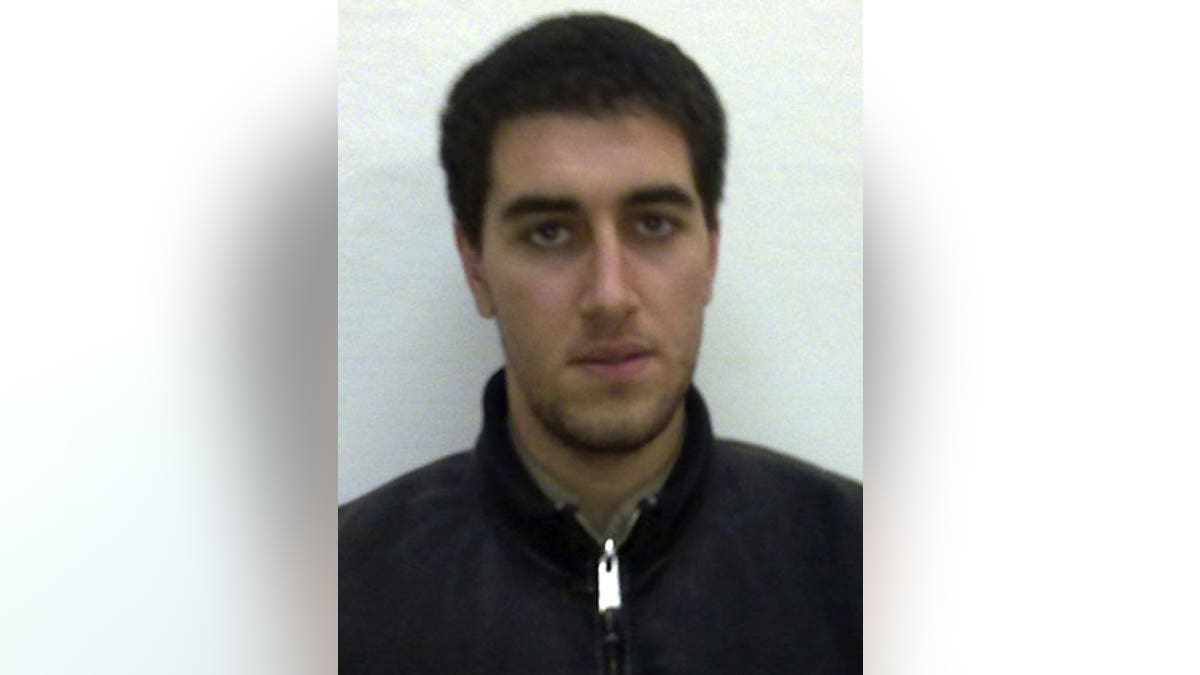
An undated picture shows a young man identified as Ramy Zamzam, who police say was one of the five Americans arrested in Pakistan in a terror plot. (Reuters)
The five young Americans accused last week of traveling from Washington to Pakistan to wage jihad cap what appears to be a record year for homegrown terror plots, exposing a dangerous trend that experts say poses the biggest challenge America's security officials have ever faced.
Not including the Pakistan case, the Rand Corporation says that of the nearly 30 homegrown terror plots uncovered in the U.S. since Sept. 11, 2001, 10 surfaced in this year alone, including two actual attacks — in Little Rock, Ark. and Fort Hood, Texas.
SLIDESHOW: 2009 Homegrown Terror Suspects
That puts "the level of activity in 2009 much higher than that of previous years," Rand Senior Adviser Brian Jenkins told the Senate Homeland Security and Governmental Affairs Committee last month.
Click here to read Jenkins' full testimony.
"There's definitely a rise in jihad recruits and volunteers in the United States, whether they're concerning plots here in the U.S. or whether they involve material support to terror plots overseas," says counterterrorism analyst Steve Emerson, author of "American Jihad: The Terrorists Living Among Us."
Danny Coulson, former deputy assistant director of the FBI, agrees.
"I ran the entire terrorism program for the FBI for a period of time, and just from what you see in the newspaper there have been more American Islamic extremists terrorists arrested than years in the past," Coulson told FoxNews.com.
A major concern, Coulson says, is that the majority of the suspects in the 2009 cases have no direct links to major terror organizations.
"They're just homegrown terrorists who sympathize with the same Islamic extremist philosophy, and although they're not connected by order or by organization, they're connected by philosophy and religion," he said.
The smaller cells tend to be less powerful than a central terrorist organization like Al Qaeda, but they are harder to detect, Emerson says.
"When the group of conspirators are small it's much more difficult for the FBI to penetrate.... The larger the group, the greater the chances the FBI can infiltrate," he said. "So I think the FBI has a big challenge on its hands, probably the biggest challenge it's ever faced."
Scott Stewart, vice president of tactictal intelligence for the global intelligence company Stratfor, says the FBI's increased ability to infiltrate larger foreign-born plots has actually contributed to the spike in domestic terrorism.
"On 9/11 we had what we call an Al Qaeda all-star attack, where all the operatives had been dispatched from the core," Stewart told FoxNews.com.
"But then, after the U.S. started taking them down, they really lost the ability to do that kind of operation, and so they're regressing to the grassroots-type attacks, sometimes with an operational leader that was trained by them in the camps," he said.
According to Rand, U.S. policy decisions are another contributing factor.
"American foreign policy should not be determined by a handful of shooters and would-be bombers, but we must accept the fact that what America does in the Middle East, Afghanistan, and Pakistan may provoke terrorism in the United States," Jenkins said in his testimony. "Wars are no longer confined geographically."
Emerson says it's not the location of the wars, but the way they are perceived.
"I can tell you that the one common denominator in almost all of the cases are the views held by the jihadists that we've arrested or identified in terms of their believing that there's a war against Islam," he said.
In the case of four ex-convicts accused this year of trying to blow up two New York City synagogues and attack military aircraft, at least two of the men are believed to have adopted these beliefs while in prison.
Frank Cilluffo, director of the George Washington University Homeland Security Policy Institute, says American prisons have become a breeding ground for this kind of radicalization.
"Just as young people may become radicalized by 'cut-and-paste' versions of the Koran via the Internet, new inmates may gain the same distorted understanding of the faith from gang leaders or other influential inmates," he said.
The Internet and those "cut-and-paste" versions of the Koran are the other major factor, he says, in matching the long-held intent for these attacks with the capability to organize them.
"The Internet is very significant here, for those who turn to, say, Google for their facts. There's a lot of violent narrative out there ... it has grown exponentially and continues to grow exponentially," he said.
"The killer 'application' of the Internet is the people," he added. "Affirmation from like-minded people around the world — it plays that uniting kind of role."
Cilluffo said that the key to stopping homegrown radicalism is the actual defeat of Al Qaeda, plus a powerful counternarrative aimed at defeating the terrorist organization's brand.
"Al Qaeda rose to prominence through a story that explains history, justifies violence, and promises victory," he wrote in an April report. "What's needed ... is a global rethink about how the other side of the story — the side of the often Muslim victims — gets told."
The answer, he says, is to tell the victims' stories "compellingly and exhaustively."
"That narrative could tap online social networks, creating a Facebook of the bereaved that crosses borders and cultures. A series of public service announcements, timed after attacks, could detail the innocent lives snuffed out by Al Qaeda," he said.
"Giving its victims a chance to make their stories heard as well will cast a harsh light on Al Qaeda's actions, helping delegitimize and deglamorize the terrorist narrative. End of story."
